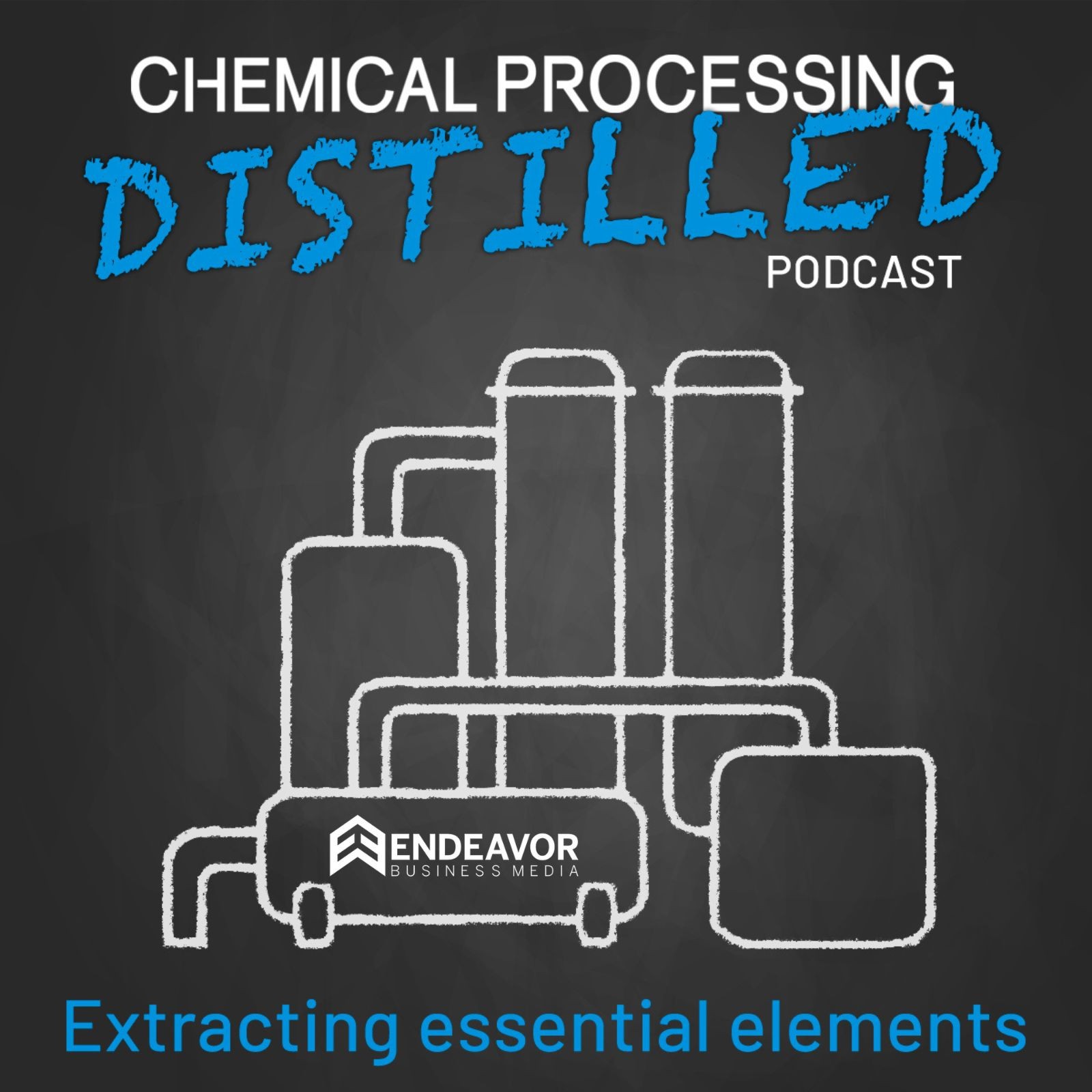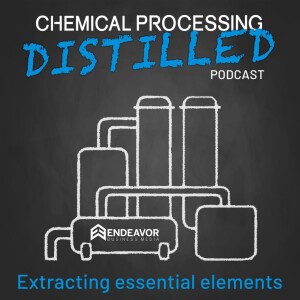
23.3K
Downloads
149
Episodes
The Chemical Processing Distilled podcast extracts essential elements to serve engineers designing and operating plants in the chemical industry.
The Chemical Processing Distilled podcast extracts essential elements to serve engineers designing and operating plants in the chemical industry.
Episodes

Friday May 02, 2025
Environmental Policy Shifts Reshape Chemical Industry Landscape
Friday May 02, 2025
Friday May 02, 2025
Executive Editor Jonathan Katz highlights the news of April 2025.
Trump's EPA eases regulations while confusion stalls recycling innovation and Dow delays climate investments.

Friday Apr 25, 2025
Why Advice Alone Won’t Get You Promoted in the Chemical Industry
Friday Apr 25, 2025
Friday Apr 25, 2025
Olivia followed all the right steps. As a chemical engineer at a major manufacturing plant, she had a mentor – a senior colleague who gave her great advice on career growth, technical skills and workplace challenges. She networked, took on projects and worked hard.
Yet, after years of effort, she was still in the same role, watching others get ahead.
Then she met Rahul, a senior executive who didn’t just advise – he advocated.
This In Case You Missed It episode features a column by Lauren Neal, Chemical Processing's Workforce Matters columnist. It is read by Editor-in-Chief Traci Purdum.

Tuesday Apr 22, 2025
Earth Day — Lax Regulations Burn Rivers
Tuesday Apr 22, 2025
Tuesday Apr 22, 2025
This Earth Day, the chemical industry finds itself at a crossroads in an era of deregulation.
Growing up in Cleveland, Ohio, you learn early on all the things that put the city on the map. Two local cartoonists, Jerry Siegel and Joe Shuster, gave the world Superman. The city pioneered traffic safety with the world's first electric signal in 1914, forever changing how streets operate. The Rock and Roll Hall of Fame calls Cleveland home, as does the house from "A Christmas Story," where the warning "You'll shoot your eye out" is synonymous with Red Ryder BB guns. And yes, our river caught fire — more than once.

Friday Apr 18, 2025
The Missing Step in Operator Training? Practice
Friday Apr 18, 2025
Friday Apr 18, 2025
In this episode, Traci and Dave discuss the importance of practice in operator training programs. Practice is often overlooked despite being crucial. Realistic scenarios that mimic real-world conditions, including time constraints and environmental challenges, are beneficial to anchoring lessons learned. Feedback loops are also necessary to evaluate individual performance and improve training programs. The new concept of micro training, in addition to having operators teach others, helps operators continuously practice their skills.

Monday Apr 14, 2025
Helping Process Manufacturers Enhance Sustainability Efforts
Monday Apr 14, 2025
Monday Apr 14, 2025
In a recent episode of Ear on Processing from Chemical Processing’s sister brand Processing, chief editor, Jesse Osborne, sat down with Greene Tweed’s business development manager for life sciences markets. They discussed the importance of sustainability for process manufacturers and outlined how Green Tweed’s FFKM products are assisting in that regard.
Enjoy this bonus episode of Distilled.

Friday Apr 11, 2025
Chemical Industry Wary as Trump Tariffs Take Effect
Friday Apr 11, 2025
Friday Apr 11, 2025
Trade organizations express concern over rising costs and supply chain disruptions. This episode takes a look at how the Trump administration's whiplash tariffs will impact the chemical industry.

Friday Apr 04, 2025
EPA & ACC Battle, CSB’s Lessons from Deadly Incidents, BASF’s New CEO
Friday Apr 04, 2025
Friday Apr 04, 2025
A power shift is underway at the EPA as former American Chemistry Council representatives are positioned to assume key roles under the Trump administration, potentially reshaping the agency's regulatory approach. Meanwhile, safety concerns remain paramount as the U.S. Chemical Safety Board continues investigating a deadly reactor explosion at a Louisville food additive plant that claimed two workers' lives. The CSB has also released new reports analyzing recent industrial accidents to prevent future incidents. In corporate news, major chemical and energy companies including BASF, Chevron, DuPont, and Shell have announced significant executive leadership changes that could influence industry direction in the coming months.

Friday Mar 28, 2025
Friday Mar 28, 2025
Electromagnetic flow meters are volumetric flow meters that use electromagnetic induction to measure liquid velocity. This measurement method is highly accurate at measuring water-based fluids as they pass through a pipe. They are cost-effective, long-lasting and compatible with existing technology. However, there are things to consider before investing in this technology.
Chemical Processing chatted with Joseph Incontri, director of marketing North America at Krohne, to help us understand the pros and cons.

Friday Mar 21, 2025
Learning Objectives: Measurable Skills, Not Vague Knowledge
Friday Mar 21, 2025
Friday Mar 21, 2025
In this episode, Traci and Dave discuss how learning objectives fit into instructional system design. Learning objectives should be measurable, not subject to interpretation, and directly testable. Unlike vague goals like "understand distillation," effective objectives specify demonstrable skills.

Friday Mar 14, 2025
8 Steps for Solids Equipment Selection
Friday Mar 14, 2025
Friday Mar 14, 2025
I’ve never seen a piece of equipment that didn’t do what it was supposed to. That doesn’t mean it did what its user thought it could do. In solids processing, we often struggle with a piece of equipment because it was a poor selection or installed improperly.
There are eight specific steps to ensure your equipment choices accurately represent your product and operations.
Column "8 Steps for Solids Equipment Selection" by Tom Blackwood and narrated by Traci Purdum.
